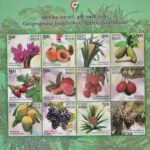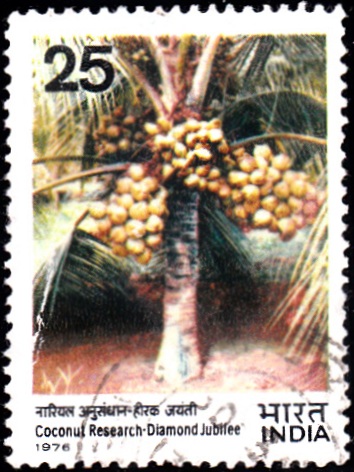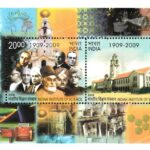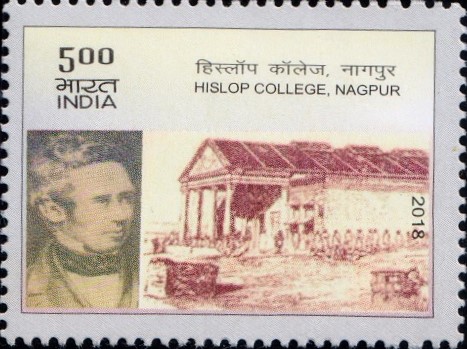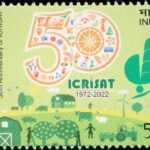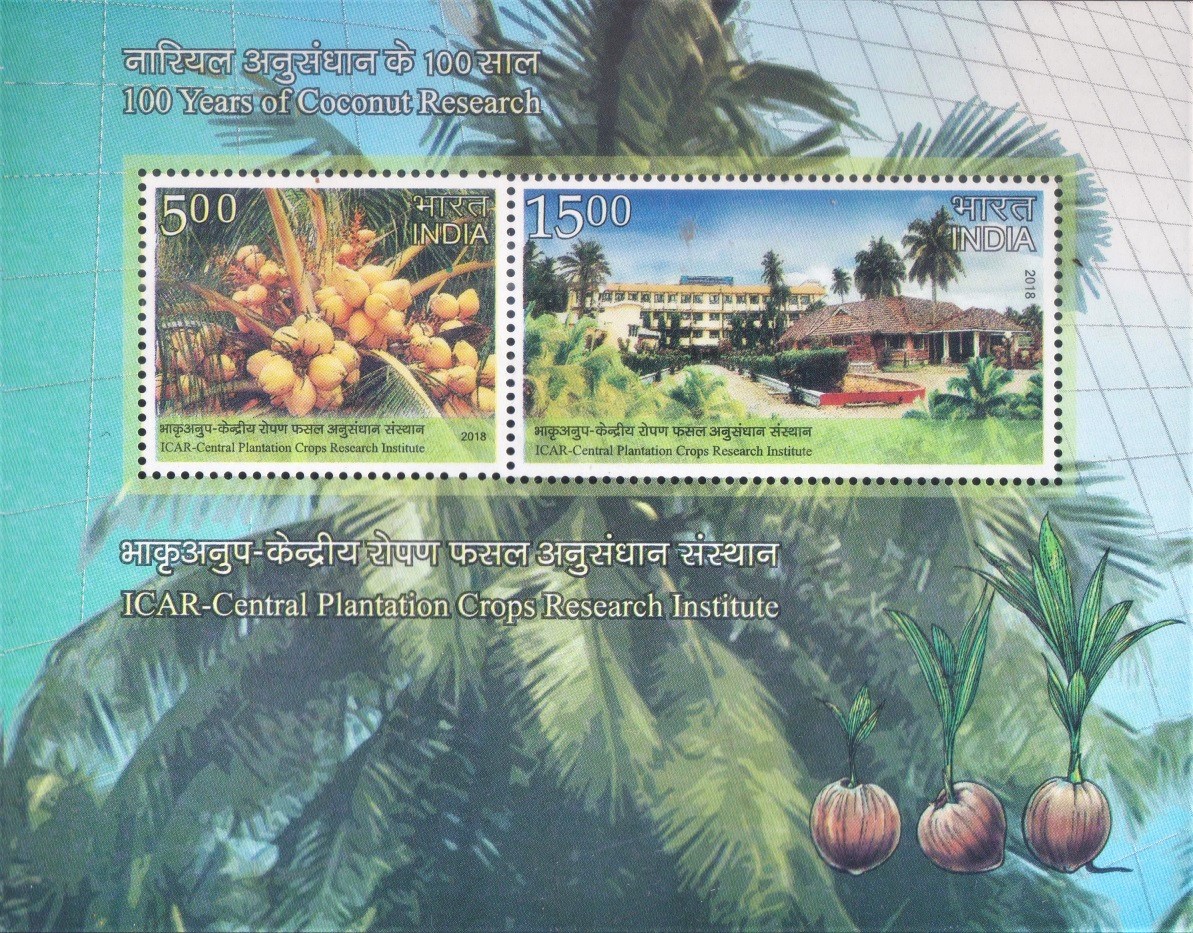
ICAR – Central Plantation Crops Research Institute
A Miniature Sheet consisting of 2 nos. of postage stamp on 100 years of Coconut Research by the Indian Council of Agricultural Research – Central Plantation Crops Research Institute (ICAR-CPCRI), Kasaragod :
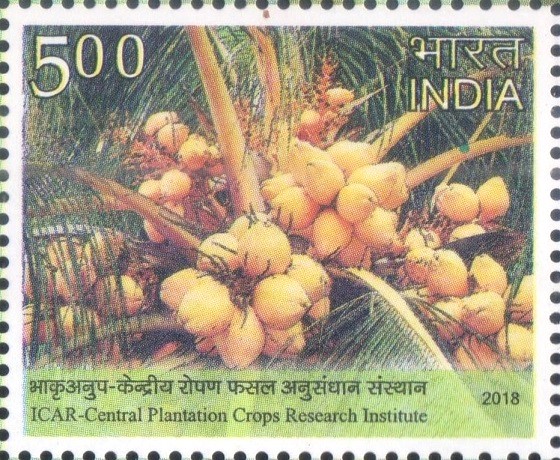
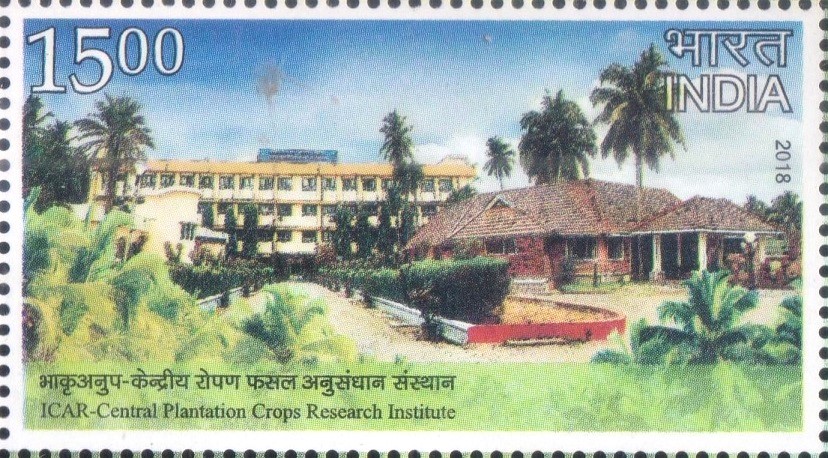
 Issued by India
Issued by India
Issued on Jan 8, 2018
Issued for : Department of Posts is pleased to issue a set of two Commemorative Postage Stamps on ICAR – Central Plantation Crops Research Institute on celebration of 100 illustrious years of excellence in research by the Institute.
Credits :
Stamp/Miniature Sheet/FDC/Brochure : Sh. Suresh Kumar
Cancellation Cachet : Smt. Nenu Gupta
Type : Miniature Sheet, Mint Condition
Colour : Multi Colour
Denomination : 500 Paise, 1500 Paise
Stamps Printed : 601100, 501100
Miniature Sheet Printed : 1.10 Lakh
Printing Process : Wet Offset
Printer : Security Printing Press, Hyderabad
About :
- Indian Council of Agricultural Research – Central Plantation Crops Research Institute (ICAR-CPCRI), Kasaragod, is celebrating its 100th year in research. Established as a Coconut Research Station in 1916, the Institute has been undertaking research and extension activities on plantation crops, especially coconut, arecanut and cocoa for nearly a century.
- The Coconut Research Station at Kasaragod in Kerala was initially established in 1916 by the Presidency of Madras and subsequently it was taken over by the Indian Central Coconut Committee in 1948. The ICAR – Central Plantation Crops Research Institute (ICAR-CPCRI) has come into existence in 1970 as one of the agricultural research institutes in the National Agricultural Research System (NARS) under the ICAR by merging Central Coconut Research Station, Kasaragod, Central Coconut Research Station, Kayamkulam as well as Central Arecanut Research Station, Vittal and its five substations at Palode and Kannara (Kerala), Hirehalli (Karnataka), Mohitnagar (West Bengal) and Kahikuchi (Assam).
- The Central Coconut Research Station (CCRS) at Kayamkulam was established in 1948 by the Indian Central Coconut Committee. The CCRS had its origin in the erstwhile Agricultural Research Laboratory (Office of the Plant Pathologist) started in 1937, with its headquarters at Kollam and a field station at Kayamkulam mainly to tackle plant protection problems of coconut. The ICAR took over the administrative control of CCRS from 1st April, 1966 following the abolition of the Commodity Committees. With the establishment of ICAR-CPCRI in 1970 at Kasaragod, Kayamkulam centre was established as one of the regional stations.
- The research efforts on arecanut started as early as 1947 through the establishment of adhoc arecanut committee by ICAR to study the problems of arecanut industry. The committee gave a firm foundation for arecanut research by establishing the Central Arecanut Research Station (CARS) at Vittal in 1956. Consequent to the establishment of the ICAR-CPCRI in 1970, the CARS became the Regional Station of the Institute.
- The Research Centre (RC), Kahikuchi came into force in 1959 as Regional Arecanut Research Station under Central Arecanut Research Station (CARS). Later, the centre was amalgamated with the ICAR-CPCRI in 1970 as one of the research centres.
- The Research Centre, Mohitnagar (WB) was established in the year 1958 as Regional Arecanut Research Station under Central Arecanut Research Station. Later, the centre was merged with ICAR-CPCRI, Kasaragod in 1970 and designated as one of the research centres.
- The ICAR-CPCRI Research Centre Kidu was established as Seed Farm in the year 1972 with an aim to produce genetically superior planting materials of coconut, arecanut, cocoa and cashew and subsequently upgraded to Research Centre in 2002. At present, the farm has 120 hectare of lease land of which 92.5 hectare are under coconut, 7.5 hectare under arecanut and 2.5 hectare under cocoa. International Coconut Gene Bank for South Asia (ICG-SA) under Bioversity – Coconut Genetic Resources Network (COGENT) was established at this centre in the year 1998.
- The Minicoy centre, previously known as ‘ICAR Research Complex for Lakshadweep’ was established at Minicoy Island during 1976, under the overall administrative control of CPCRI. Consequent upon the formation of the Island Zone under the ICAR system, the station was merged with the ICAR-Central Agricultural Research Institute (ICAR-CARI), Port Blair, Andamans during 1989. Subsequently, based on the repeated requests from the farming community and the Department of Agriculture, Union territory of Lakshadweep, the Station was brought again under the administrative control of ICAR-CPCRI during 1994 and operated as one of the Regional Stations of CPCRI till 2011. The centre has also received the farm land and facilities of the erstwhile Research Centre of Central Marine Fisheries Research Institute (CMFRI) functioned at Minicoy during 2006. Since 2011, the station at Minicoy functions as a demonstration-cum-production centre for enhancing the production and availability of fruits and vegetables in the Island.
- The All India Co-ordinated Coconut and Arecanut Improvement Project (AICCAIP) started functioning from 1972 with its headquarters at CPCRI, Kasaragod. Since 1986, it functions as the All India Coordinated Research Project on Palm (AICRPP) and is presently implemented in 21 Centre’s located in 12 State Agricultural Universities and one Central Institute. CPCRI is also the mother institute in the ICAR plantation crops sector and has nurtured the establishment of four institutes, viz. ICAR – Central Coastal Agricultural Institute of Spices Research and ICAR – Directorate of Cashew Research.
- The Institute has provided an inspiring leadership in research and development of technologies contributing to India’s emergence as the world leader in the production of coconut and arecanut. The Institute has added many feathers to its crown including development of high yielding varieties in all mandate crops, new biotechnological applications, bio-control for diseases and pests, production technologies for enhancing productivity of cropping system, improved machineries for post and pre-harvest processes and new value added products. Further its achievement in development of technologies, the institute has been successful in taking it to the farmers and other stake holders through innovative technology transfer initiatives. Recognizing the yeoman services rendered, ICAR bestowed the ‘Sardar Patel Outstanding Institution Award’ to CPCRI in the year 2002.
- Text : Based on the information received from proponent.


